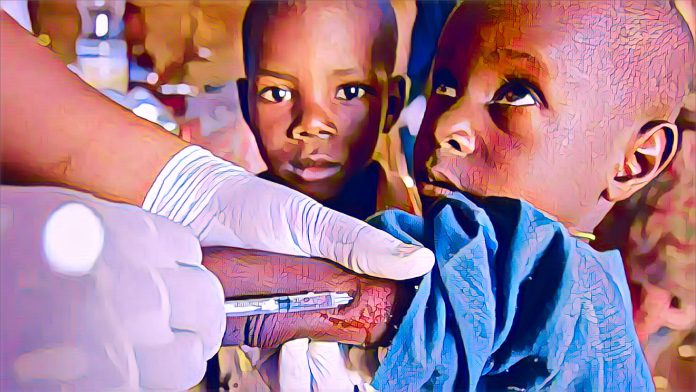KEY POINTS
- Nigeria receives 1 million doses of advanced meningitis vaccine to combat deadly outbreak that has killed 70 people across 23 states.
- Vaccination campaign targets high-risk groups (ages 1-29) in northern states, beginning with Kebbi and Sokoto.
- Global health partners (Gavi, UNICEF, WHO) support Nigeria’s response to curb spread in Africa’s meningitis belt region.
The Nigerian government has taken delivery of one million doses of the meningococcal conjugate vaccine (Men5CV) to combat a dangerous outbreak of meningitis types C and W currently ravaging northern regions of the country.
The vaccines, provided through the Gavi-funded global stockpile, arrived on April 1 and will immediately be deployed in Kebbi and Sokoto states, with Yobe state to follow as more doses become available.
Health Minister Prof. Muhammad Ali Pate described the shipment as “a crucial milestone in Nigeria’s response to the meningitis outbreak,” noting it aligns with President Tinubu’s health protection agenda.
Channelstv reported that the outbreak has already infected over 800 people and killed more than 70 across 23 states, primarily affecting children and young adults aged 1-29 years.
Meningitis: Global health partners rally behind Nigeria’s vaccination push
The vaccination campaign represents a coordinated effort between Nigerian health authorities and international partners including Gavi, UNICEF, and WHO.
Francisco Luquero of Gavi noted that “vaccines successfully eliminated meningitis A from Africa’s meningitis belt,” expressing confidence in the new Men5CV vaccine which protects against five bacterial strains.
UNICEF Nigeria Representative Cristian Munduate emphasized the urgency of the response, stating “every child deserves protection from life-threatening diseases like meningitis.”
The Men5CV vaccine represents a major advancement as it provides broader protection than previous vaccines used in Africa’s “meningitis belt” – a region stretching across 26 countries from Senegal to Ethiopia where the disease remains endemic.
Health officials plan to combine the vaccination drive with community engagement and surveillance activities to contain the outbreak and prevent future epidemics.
WHO Nigeria’s Dr. Walter Kazadi Mulombo praised the collaborative effort, calling it essential to “safeguard generations to come.”



